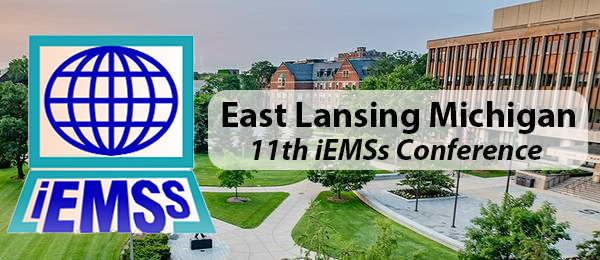Keywords
blue-green infrastructure; land development; public information; ecosystem services; stormwater management; carbon sequestration; participatory modelling
Start Date
5-7-2022 12:00 PM
End Date
5-7-2022 12:30 PM
Abstract
Canada is an urban nation where both intensification and greenfield residential development often reduce green infrastructure (GI). While cities are setting ambitious climate mitigation goals, they are concurrently losing GI’s contributions towards these goals. Novel green development standards create some developer incentives to provide GI, but on the whole, as GI on private lands creates public benefits but is financed by private costs, developer GI provision is too low. Further, cities lack complete and costfeasible information on how greenhouse gas (GHG) profiles of developments evolve temporally. In this paper, we present the concept of RISE (Residential Intensification Scorecard for the Enviornment), which reflects the flow of greenhouse gas mitigation and storm water flow reduction for proposed developments. RISE will: 1) employ novel scientific methods to quantify urban terrestrial and wetland-based carbon stocks, sequestration and GHG emissions; 2) develop a simple, dynamic carbon and GHG scorecard that will complement existing green building standards by tracking the state and trajectory of residential developments; and 3) test its potential to induce developer behavioral change by incentivizing GI investments through social norms and status-seeking behavior. RISE will minimally answer the following questions: 1) What trajectory of ecosystem services will it produce over the next 50 years in its current use? 2) How will this trajectory change under the proposed development? 3) Is there a point in the future where its new natural assets will result in a higher flow of services? By bringing the RISE scorecard values into the public realm we can evaluate the potential of RISE to motivate behavioural change: by planners as a tool for negotiation with developers; by developers through peer/reputational effects, rewarding altruistic public-good provision, and improved green marketing opportunities; by buyers through improved market information to support pro-environmental choices, and by residents, environmental activists, and city councils to support evidenced-based negotiation.
The RISE scorecard—a new tool to incentivize provision of bluegreen infrastructure on private developments
Canada is an urban nation where both intensification and greenfield residential development often reduce green infrastructure (GI). While cities are setting ambitious climate mitigation goals, they are concurrently losing GI’s contributions towards these goals. Novel green development standards create some developer incentives to provide GI, but on the whole, as GI on private lands creates public benefits but is financed by private costs, developer GI provision is too low. Further, cities lack complete and costfeasible information on how greenhouse gas (GHG) profiles of developments evolve temporally. In this paper, we present the concept of RISE (Residential Intensification Scorecard for the Enviornment), which reflects the flow of greenhouse gas mitigation and storm water flow reduction for proposed developments. RISE will: 1) employ novel scientific methods to quantify urban terrestrial and wetland-based carbon stocks, sequestration and GHG emissions; 2) develop a simple, dynamic carbon and GHG scorecard that will complement existing green building standards by tracking the state and trajectory of residential developments; and 3) test its potential to induce developer behavioral change by incentivizing GI investments through social norms and status-seeking behavior. RISE will minimally answer the following questions: 1) What trajectory of ecosystem services will it produce over the next 50 years in its current use? 2) How will this trajectory change under the proposed development? 3) Is there a point in the future where its new natural assets will result in a higher flow of services? By bringing the RISE scorecard values into the public realm we can evaluate the potential of RISE to motivate behavioural change: by planners as a tool for negotiation with developers; by developers through peer/reputational effects, rewarding altruistic public-good provision, and improved green marketing opportunities; by buyers through improved market information to support pro-environmental choices, and by residents, environmental activists, and city councils to support evidenced-based negotiation.



Stream and Session
false